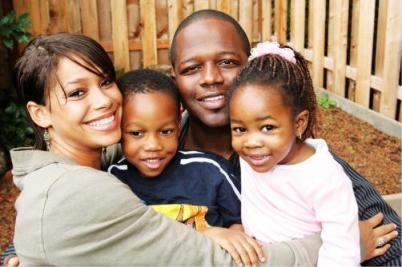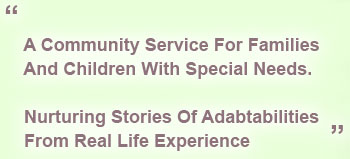Miracles from Children’s Play, Day by Day
Back to Miracle of Play Contents
INVITATION:
ABLE-differently welcomes you to an important part of our work on behalf of your child and family. The mind and heart can use expanded ideas of play as a building-block to learn and grow developmentally and socially. The ABLE-differently program brokers for your child with play-centered approaches already in the community, based on years of knowledge and research. These practices are based on theories such as attachment, exploration, and discovery, and ABLE-differently uses these as a foundation to help your child cultivate flourishing, self-esteem, and internal motivation.

ABLE-differently hopes to serve as a guide to accompany your child’s and family’s positive mental health needs, as opposed to treating with the medical model focusing on negative symptoms, be that with a therapist, doctor, or just on your own. By using these researched theories based on positive psychology, you can help unlock your child’s potential emotional expression and self-worth. This self-worth from recognized success can spill over in to other aspects of your child’s life, be that from improved family communication to succeeding at challenging goals. As we all know, when a child is happy and healthy, the benefits spill over into the family and supporting community. It is our hope that this dream can be achieved by uniting the village to nurture the child’s heart and mind.
We welcome you all to participate in this ongoing discussion at info@able-differently.org
TAPPING INNATE RESILIENCY RESOURCES:
Children’s resiliency theory has shown us that 75% children who were exposed to challenging life situations such as poverty, divorce, abuse, chronic health and developmental issues, still were able to experience life success. Research reveals that striving to ward off adversity is an inherent trait that children with these disability situations can tap into if necessary. These protective resources can be supported by families, schools, and communities. The key to harnessing this innate resilience is to nurture it.
Every child, be they faced with challenging situations, with differing abilities or not, has the potential to utilize these thriving potentials in their own way. The children of promise can realize resiliency resources by a number of therapeutic techniques gleaned from positive psychology, positive youth development, and strength-based approaches.
Three themes have been found to stoke the fire of development of internal motivational needs and drives: 1) caring relationships where the child feels safe and unconditionally loved, 2) belief in child’s having hopes and dreams, and 3) opportunities for meaningful participation and contributions. All of these factors contribute to the development of a turn-around by enhancing a child’s sense of belonging, affection, safety, shared power and mastery, and meaning in life. As a child develops these internal resources they also improve outwardly with increased competence in empathy and decision making, problem-solving, and autonomy.
NURTURING RESILIENT EMOTIONS AND PERSONAL TRAITS:

Understanding the process children go through to achieve flourishing in spite of physical or mental disability needs focus on the creation, recovering, and reclaiming of their destiny. Instead of focusing on what’s “wrong,” we focus on what’s “right.” This paradigm shift can empower a child to create meaning and find hope in their future.
We now understand that quality of life is no longer described as just the absence of illness or medical conditions, but the presence of a sense of wellbeing, purpose in life, goals, and dreams. All of these things are sources of strength and happiness and, in turn, resilience to challenging life situations.
In order for a child to function well and to live a life that feels good requires basic needs: a sense of belonging, safety, caring, having choices, social competence, motivation, and purpose. Research shows it is important for children to feel these weekly, if not daily, throughout their developmental years. A child’s life is lived in moments of experience. Positive emotions can contribute to personal health and development by expanding and broadening a child’s scope of purpose and potential. Emotions such as awe, wonder, happiness and compassion are so very important in creating opportunities for flexibility, positive relationships, subjective wellbeing, and vitality with positivity to negativity ratios of 3:1.
Creating opportunities for play and positive relationships not only can contribute to a child’s self-worth, but may also “undo” negative emotions. Play creates fun and excitement for children, which creates temporary resources that fuel the child’s grit, gumption, and emotional endurance. Creating opportunities for children to engage in play-flow experiences, mindfulness, pathway goals offering hope, agency, choice, and positive explanatory thinking is not only therapeutic, but healthy to do well supporting optimistic outcomes.
TURN-AROUND LEVELS OF EXPERIENCE: INNOVATIONS INTO THE WORLD OF THE CHILD:
Social opportunities are important for play to be a transformative and therapeutic experience. A child’s brain is constantly developing and needs new and compelling experiences to develop new brain cells, pathways, and neuronal circuits. Social connection, engagement, and interaction are all assets play-time provides for a child. Providing a safe and secure place for a child to play will enable the experience to be one where the child can explore and take risks, both which are measures of improved quality of life.
The following levels of experiences are ways of taking play to the transformative and healing level:
LEVEL 1: Experience the Day to Day and Ordinary Life Events
Teaching “mindfulness” in a child’s day to day activities can be a great tool in enriching the child’s play experience. Using routine as a story intervention may bring forth a focused attention to their internal emotions and feelings. Let the child use play as a way to tell her own story with structured and unstructured daily journaling, photography, or painting. Where the structured activity gives the child comfort, speaking of the future, hopes, and dreams can be less scary and free time truly is spontaneous and improvisational mindful of a balance in over scheduling and boredom.
LEVEL 2: Expanding the Natural Environment with the Ordinary Turning into Extraordinary Experiences
Getting your child involved in clubs, youth organizations and groups, team sports, many of these available from after school programs or faith-based activities, can be a powerful tool in creating meaning and goals on the child’s life. Getting involved in a “group” can benefit the child in a number of ways: from increased physical health, activity, healthy food choices with bodily weight management with more optimal BMI, to learning cooperation and leadership skills. Using these group activities as a vehicle for self-expression and creating a story can turn ordinary environments into extraordinary learning experiences.
LEVEL 3: Creative Arts Experiences

Expression and story-telling can happen in the most profound ways when your child is involved in theatre, drama, dance, visual arts, music, creative writing, and/or photography. Further processing meanings and understandings beyond what they have expressed in song or in a drawing can be a powerful therapeutic tool. Unleashing your child’s creativity not only helps with their self-expression, but gives them another medium for them to communicate their feelings and emotions.
LEVEL 4: Transcendent and Higher Order Experiences
Self-directed questions or self-feedback can be a way for your child to explore their grief, anxiety, or losses. Volunteering or mentoring can be a powerful way for your child to have their “moment of clarity” or “epiphany.” Learning thankfulness, kindness, (and) gratitude and generosity are all ways a child can enlighten your child as to what was a meaningful encounter or a transformative experience in their life.
ACCESS TO MEASURING QUALITY OF LIFE IN CHILDREN’S DAILY EXPERIENCE:
There are a number of methods for measuring emotional wellbeing and the ABLE-Differently Program with your school psychologist can help you administer these measures to help gauge your child’s wellbeing. It is important to involve a mental health care professional in administering and interpreting your child’s results, as they can assist you in a customized treatment plan.
An expanded and more scientific version of this document is available.








Social Networks
Follow Us